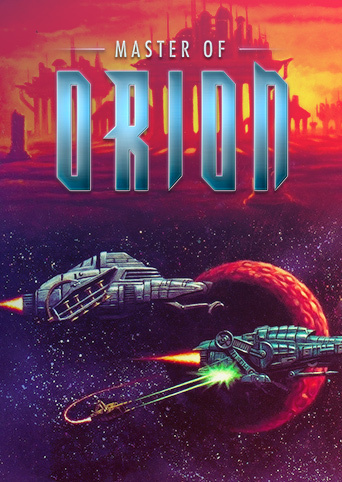



Honestly, this game is brilliant beyond its time. The mechanics are abstracted in a way that might not be intuitive to players of Civilization. You don't choose what to build directly from a menu, you choose the priority of a planet's production, and it iterates through it in a fixed order. But honestly, despite its age, there is nothing like it, and it's a breath of fresh air. Every other 4X game has copied Civ, and I don't know of any that have copied MoO. But the best thing is the BALANCE. It's a game that feels engaging and challenging throughout, in the way that it "unfairly" tries to prevent you from winning. I want to compare it to the "Endless Space" series. It's a similar Sci-Fi 4X game, but there is a philosophical difference between them. Master Of Orion makes you feel like the AI hates you; it's as if they understand the goal of the game, and understand that the human player has an advantage, so the computer players won't ally with you unless you give them a good reason to. The AI's actions often seem unreasonable, but you are given the agency to react, with tools that are easy to understand. In contrast, Endless Space makes you feel like the GAME hates you. The AI players will gladly ally and trade with you, and then they'll randomly betray you, forcing you into peace treaties you didn't agree to, or flip-flopping on their alignment, because the diplomacy system is completely illogical and unintuitive. This game from 1993 has AIs which feel more human than any 4X game I've played since. Even in the age of AI Large Language Models, the original Master Of Orion provides the most authentic diplomatic experience I've ever had. I tried to trade and gift my way to peace, and yet was almost constantly attacked by every other race due to my expansionism. And so I fought back. I obliterated the Silicoids, Bulrathi, and Sakkra to each of their last planets. I moved my fleet towards the Meklar, who I had never contacted. In fear, they gave me their vote and I won.

The issues have NOT been fixed. I downloaded this game from gog for free yesterday, knowing nothing about the game or what it's about. The controls are awkward, having been badly ported from console, the graphics are awful for a game that came out only a decade ago, fps is so low that aiming is basically impossible (despite running on a high end laptop that's only 3 years old), and the game crashed after the first mission. Just from a game design perspective, there are a ton of issues. Environments look strangely empty, the tutorial doesn't describe things like changing weapons properly, for some reason it's impossible to turn on the spot. Now I know why it was being given away for free.

Sid Meier's Alpha Centauri is often compared with the games in the main Civilization series, and is (in my experience) usually rated higher, and for good reason. There's an engaging story, and each faction is truly unique and each has its own play style and path to victory, unlike the superficial or absent differerences between the nations of civilization games: Gaians and Cultists thrive off of massing mind worms to overrun their enemies or holding out for the late game where they can win by transcendence. The University benefits from huge technological output which can give them the edge at significant turning points, such as the dawn of air combat. The Believers have stangant technological development, instead relying on the strength of their probe teams to steal the technology of their rivals. The combination of two different types of combat (normal attack and psi attack) makes combat deeper than in most other games - the most powerful weapons and armour are useless if their wielders don't have the psychological strength and experience to withstand hypnotic mind worms, and a demon boil of mind worms can be easily overcome by a moderately experienced scout with empath song. Unlike in the Civ games, expansion is limited by inhospitable, fungus-covered terrain. In my opinion this gives a much more realistic and engaging challenge than fiddling with numbers representing happiness, upkeep and corruption. The game is not without its flaws - the unit design workshop is a nice idea, and the combination of weapons, armour and abilities is an important part of the game, but it does become tedious when it comes to replacing the weapons, armour and reactor of almost every unit every time you get a new military technology, and there are occasional bugs and glitches with certain units not upgrading or being declared obsolete. The combat works well, but often gives too large an advantage to attacking units, as attack stats are generally much higher than defense stats.